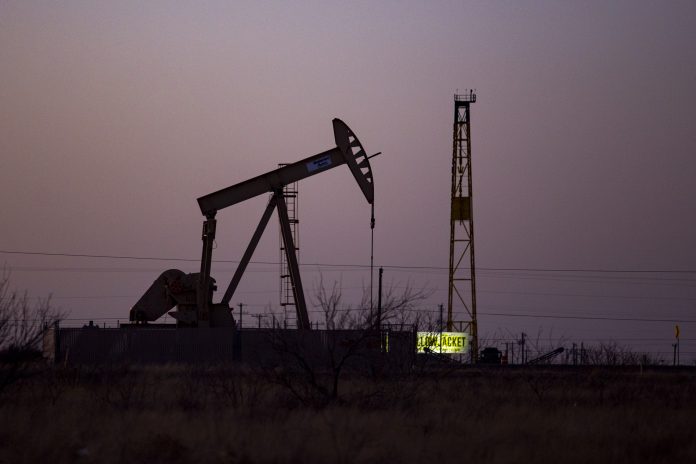The time is past when Saudi Arabia was a trusted ally of the United States, but that doesn’t dispense with the need to find new ways of working with the Middle Eastern oil dynasty.
Odessa oilman Kirk Edwards and Permian Basin International Oil Show President Larry Richards say Saudi Arabia’s heft in the global energy industry makes a relationship unavoidable.
“They can crash the oil price by putting too much oil on the market or, as they’re doing right now, keep the world price around $80 a barrel by limiting the amount of crude that’s coming onto the market from OPEC and OPEC-Plus,” Edwards said. “The Biden administration has been very negative toward Saudi Arabia, which does not bode well for a good relationship with them.”
Edwards said the Saudis’ dealings with their customers in Asia and Europe are much more positive than the industrial and political business they do with America. “They don’t supply much, if any, oil to us and what they do provide goes into their 100-percent owned Motiva Enterprises refinery on the Texas Gulf Coast,” he said.
Asked how Saudi Arabia’s tensions with Iran are affecting global politics, Edwards said, ‘The Middle East will always be in turmoil.
“The only certainty there is uncertainty on a yearly basis. Israel was bombing facilities inside Iran over the weekend and that will cause some kind of a response from Iran.
“I think one concern of the European countries and the Biden administration is the close ties Saudi Arabia has with Russia because the Saudis have clearly stated that they will do what is good for their own sovereign country. They are very independent and are becoming even more so.”
Edwards said the Biden administration must deal with Saudi Arabia to get the sour crude oil it needs to refill the Strategic Petroleum Reserve, which the administration drained of 180 million barrels last year to help lower the price of gasoline before the fall elections.
The SPR now holds 405 million barrels in four deep underground storage caverns that were created in salt domes along the Texas and Louisiana Gulf Coasts. Its capacity is 714 million barrels.
“It was very shortsighted of the administration to do that because we don’t have enough sour crude in this country to refill the SPR,” Edwards said. “The cocktail mix in the reserve is two-thirds sweet crude and a third sour crude because American refineries are built to run on that mix.”
Richards said Saudi Arabia once kept up a facade of cordiality toward the U.S., but its true feeling has always been one of hostility and contempt. “As the U.S. recalibrates our long-term relationship with the Saudi government, we should do so with our eyes wide open,” Richards said.
“While their improving relationship with Israel and steadfast animosity towards the Iranian regime are beneficial to U.S. interests, they are not our friends. One could make the case that the spread of the fundamentalist Wahhabi version of the Sunni Muslim faith across the globe, with funding from both the Saudi royal family and the government itself, has caused as much damage to the U.S. and our allies and democratic values as the fundamentalist Shia Muslim clerics in Iran.”
Richards reported visiting Saudi Arabia and seeing the malice that many of its people held for America. “There is a reason that the majority of the 9-11 highjackers who slammed planes into the World Trade Center were from Saudi Arabia,” he said.
“I have many good friends who are Muslim and I have a great deal of respect for their religion; however, the Saudi Wahhabi version of that religion teaches hatred of America and western values while gladly accepting our military protection and oil monies.”
Richards was a presenter at the International Experts Forum on Carbon Management at Khobar in 2015, which was sponsored by the Global Methane Initiative and the Saudi Aramco oil company. “I had an opportunity to meet the Saudi oil minister and even participate in a Saudi sword dance,” he said.
“While the government and Aramco folks I met were very polite and professional, I have never traveled anywhere else in the world where I felt so unwelcome by the general population simply because I was an American. The hostile stares and glaring groups of young men were bizarre and disconcerting and they led me to spend many hours researching what was actually taught in the Saudi madrassas or religious schools.
“The five-star hotel we stayed in had an armored military vehicle parked under a camo net at the entrance, locked and loaded with a machine gun mounted on top, and security personnel checked the undersides of our vehicles with mirrors for bombs when we entered and exited.
“I’ve been many places where I feared potential kidnapping or robbery but never anywhere I’ve felt at risk of my life from the general population simply because I was an American.”
Richards had always considered Saudi Arabia an American ally, but it became clear that the Saudi government hadn’t portrayed the U.S. that way. “Tensions were high during our trip because shortly before the conference, the wife of the U.S. ambassador was struck by one of the religious police,” he said.
“She’d been shopping in the local market, wearing the appropriate hijab and modest dress, but when she reached over to pick something from a stall, her dress lifted slightly and exposed her ankle. One of the religious police minders immediately struck her hard in the ankle with his staff, sending her to the ground wailing and her security detail jumping to intervene before any more ‘justice’ was delivered.
“I only share the story because I think it illustrates the challenges of dealing with an ‘ally’ whose values and beliefs more closely resemble the Middle Ages than 2023 America.”




